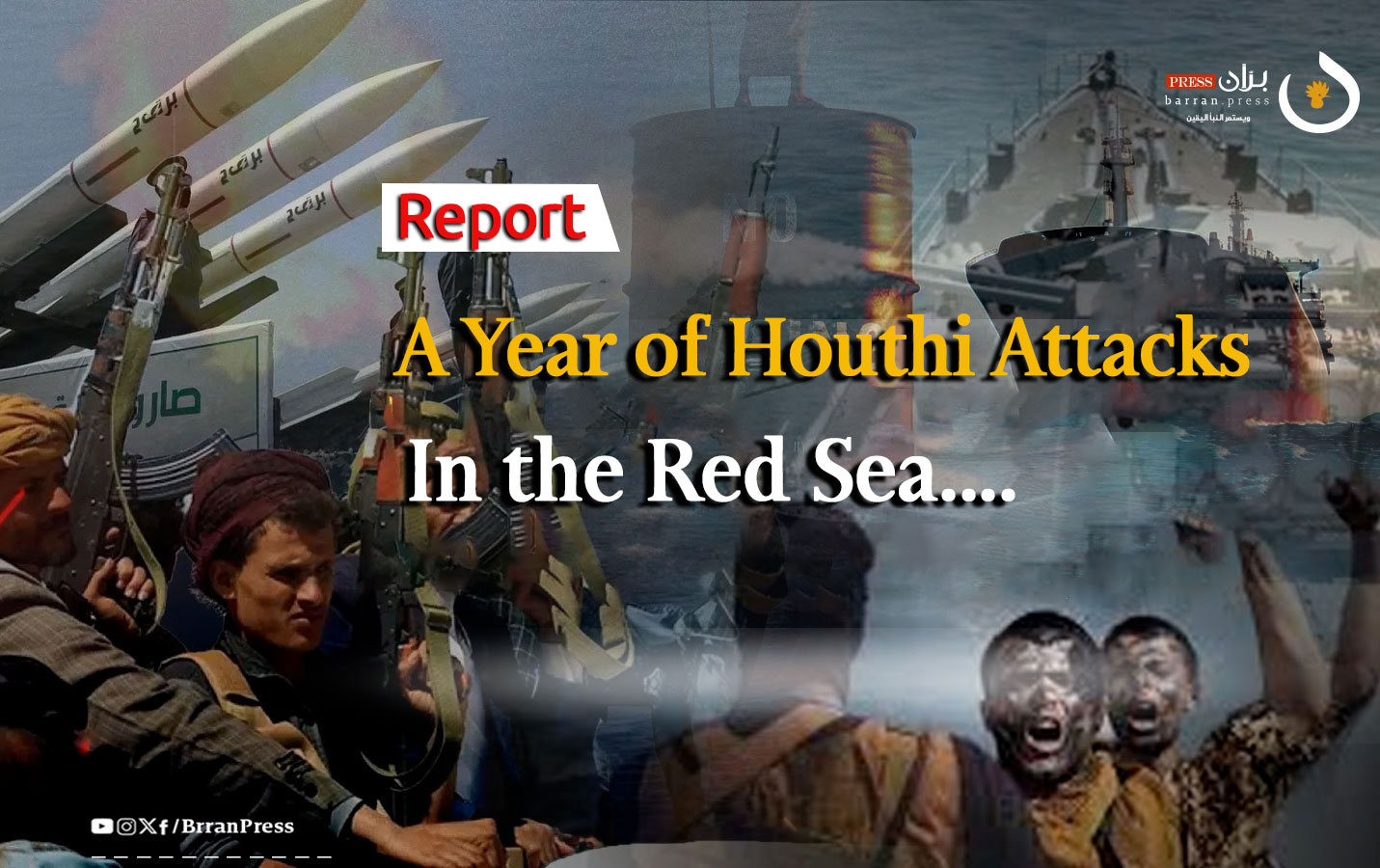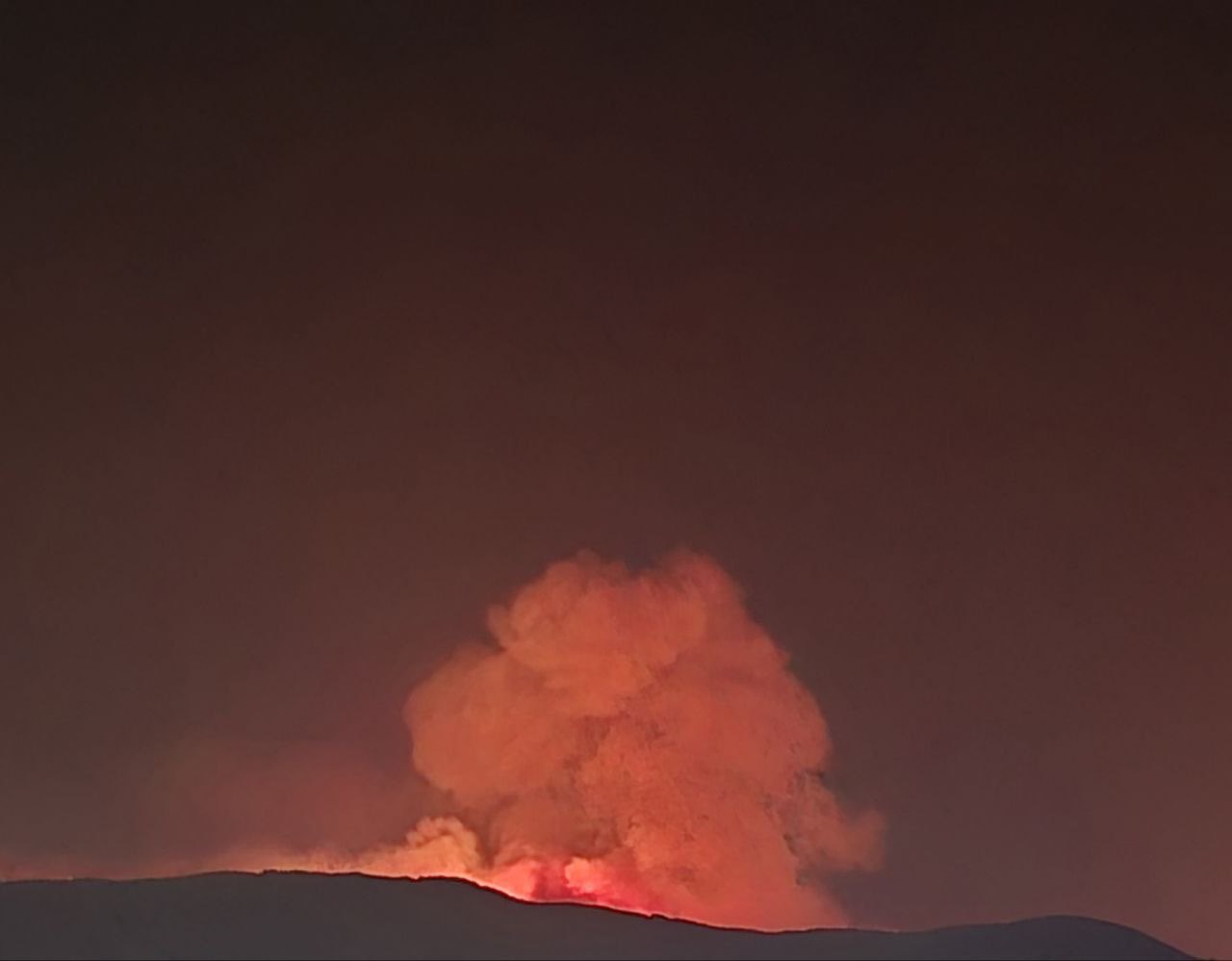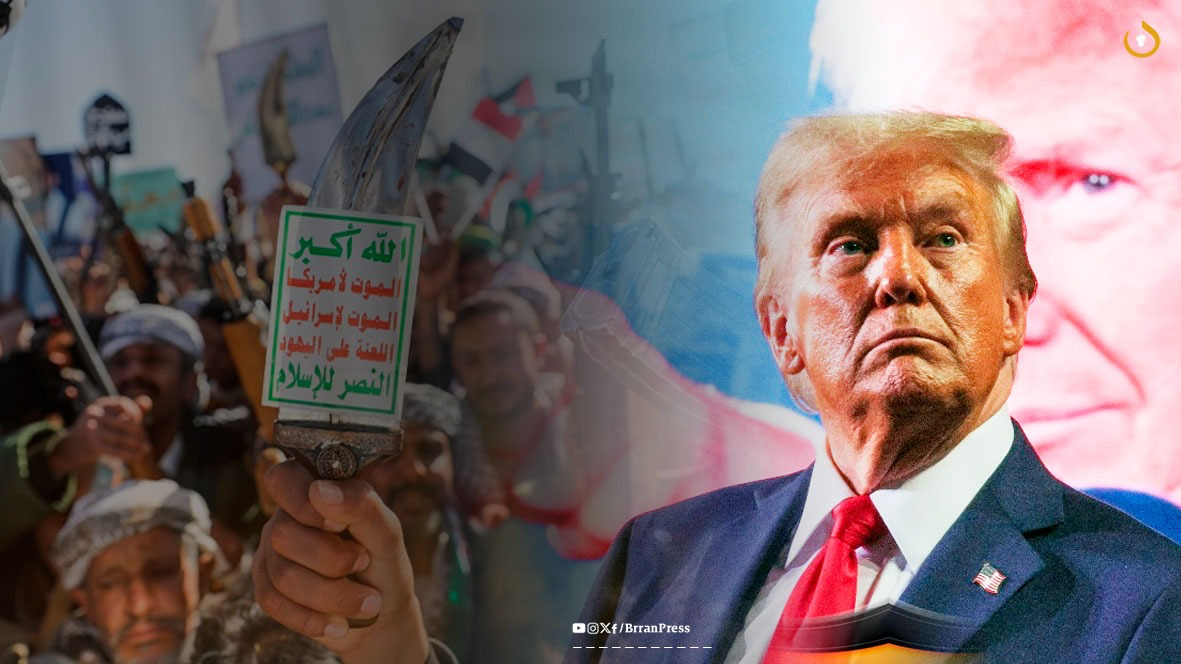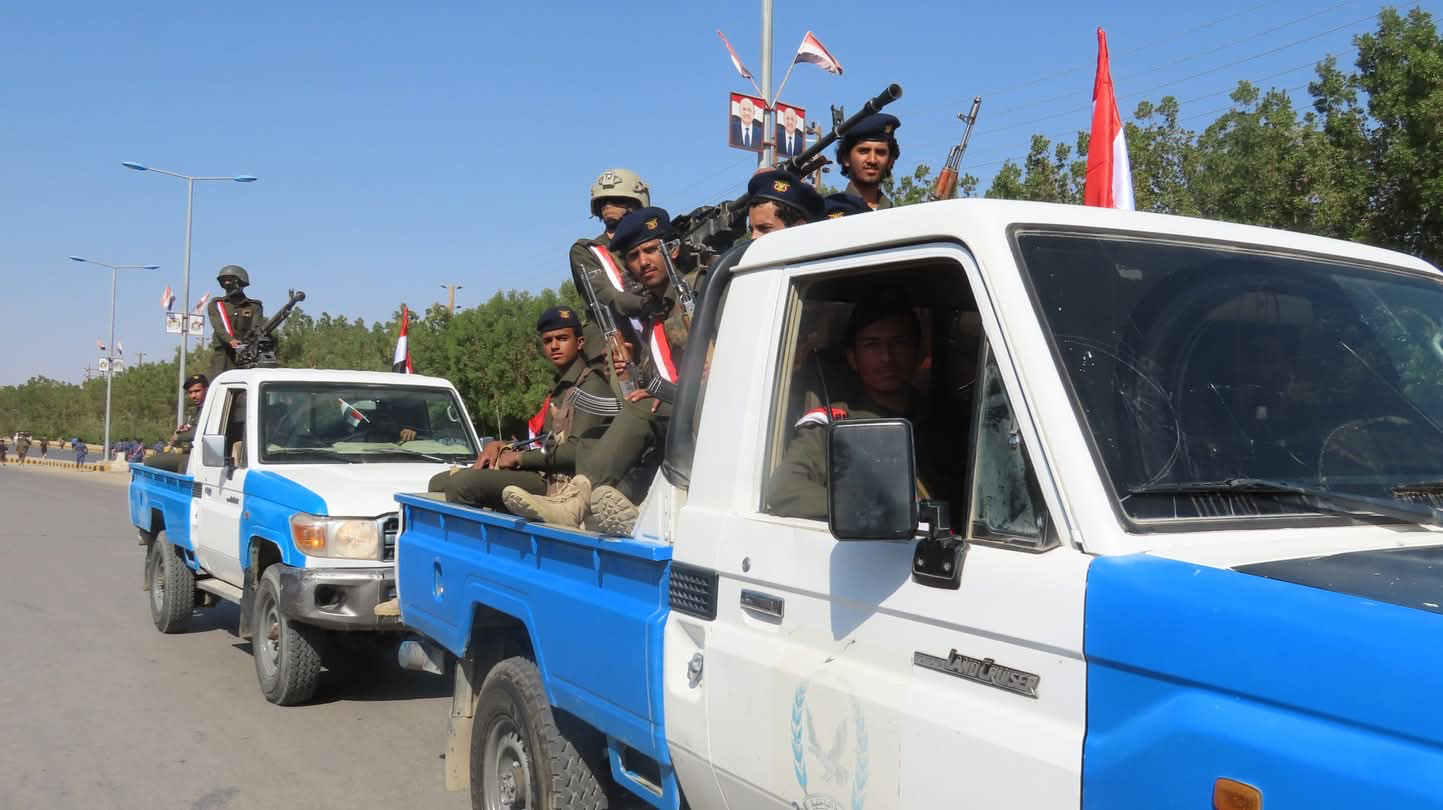
Barran Press - Nawaf AlHemyari
About a year ago, the Houthi group, classified as a terrorist organization, announced the start of its attacks on commercial ships heading to Israel through the Red Sea, claiming to support the Palestinian resistance in Gaza and pressure Israel to stop its war against the Palestinian people.
Recently, the group's leader, Abdul Malik Al-Houthi, stated that his group targeted 193 ships linked to "the Israeli, American, and British enemy" over the past year.
In response to these attacks, the United States and Britain led a coalition to protect maritime navigation and subsequently launched attacks on Houthi positions in Sanaa, Dhamar, Hodeidah, and Saada.
As a year has passed, questions arise about the effectiveness of these attacks and their impact on both local and regional levels. "Barran Press" discusses this issue with Yemeni and Arab political analysts.
Serving Iran's Agenda
Syrian researcher Mustafa Al-Nu’aimi from the Arab Forum for Iranian Policy Analysis told "Barran Press" that "all the strikes carried out by the Houthi group have not achieved any gains other than serving Iran's project, which it calls the 'Unity of the Arenas,' bringing international interventions to the region."
He added that the Houthi attacks have "enhanced the presence of both the US and Britain in the Red Sea," noting that the latter "has divided the arenas and dealt with each one separately, whether in Yemen, Iraq, Syria, or Lebanon."
Militarization of the Sea
Egyptian researcher in international relations, Dr. Shaimaa Samir, stated that the Houthi operations "have not proven their seriousness in causing significant losses to the Israeli entity, but rather have contributed to further militarization of the region."
She added in an interview with "Barran Press" that these operations have "increased the American presence represented by the Prosperity Guard coalition, followed by the European presence represented by the Aspides military mission to protect the economic interests of member states in the maritime corridor from Houthi attacks."
According to the researcher, this means "more tensions on both international and regional levels and more formations and alliances with hidden agendas."
Instability
Economic researcher Abdul Wahid Al-Awbali stated that the Houthi attacks have "exacerbated the economic crisis in Yemen and affected the revenues of the Suez Canal," indicating that the Houthis "were targeting Egypt, not Israel."
Al-Awbali told "Barran Press": "These attacks have created an atmosphere of instability in one of the world's most important maritime corridors, where a significant percentage of international trade and energy passes through."
He added that "this situation has led to increased insurance and shipping costs for ships heading to Yemen, directly impacting the prices of essential goods in Yemen and deepening the suffering of citizens already living in difficult economic conditions."
He further explained that these attacks have "negatively affected the commercial sector in Yemen; some trade partners have reconsidered dealing with Yemeni ports due to security concerns, disrupting trade movement and reducing local revenues."
According to the researcher, these damages "were not limited to Yemen alone but extended to other regional countries, including Egypt, which witnessed an impact on ship traffic in the Suez Canal due to increasing security tensions in the Red Sea. Some shipping companies have changed their routes, contributing to increased global transportation costs."
Dr. Shaimaa Samir also discussed the impact of American attacks on the humanitarian situation in Yemen, stating that this suffering "is represented in the difficulty of living under continuous military conflict."
She added in her interview with "Barran Press" that this situation "has led to the displacement of many residents to safer areas, increasing the rate of displacement in the interior regions, not to mention the infrastructure losses."
She highlighted the "destruction of vital facilities such as hospitals and treatment centers, as well as markets and shops, increasing unemployment, worsening living conditions, and raising poverty rates."
Harm to Palestine
Regarding the impact of Houthi attacks on Palestine, researcher Mustafa Al-Nuaimi believes that "the Houthi attacks have caused more harm than benefit to the Palestinian people in general."
In an interview with "Barran Press," Al-Nu’aimi stated, "If the Houthi group were serious about supporting the Palestinians, they could have entered through open fronts, whether from southern Syria or southern Lebanon."
He criticized the threats made by the group, which is linked to the Iranian axis, accusing them of "spreading terror to stable countries, particularly Arab ones, while the Israeli side intensified its strikes on Gaza."
Al-Nu’aimi added, "The Houthi group has missile capabilities that could significantly disrupt the Israeli occupation, but they have only used them gradually." He further noted that the group "gave the Israeli side an excuse to launch strikes in the Red Sea waters against activities led by the Houthi militia and the Iranian Revolutionary Guard."
He continued, "We might witness the end of Iranian activity and its Houthi arm in the Bab al-Mandab Strait soon after the strikes directed at their missile program."
Lebanese political analyst Amin Bashir expressed his regret, stating, "These attacks have not provided anything for Gaza." He added that they "called them distraction fronts, but they did not distract the enemy at all; it continued targeting and destroying what remained of Gaza."
Bashir asserted in his interview with "Barran Press" that these actions "did not have any positive impact but rather negatively affected the global trade reality, making the entire world against these militias that threaten maritime navigation."
Multiple Gains
Dr. Abdul Qadir Al-Khelli, a political science professor at Taiz University, told "Barran Press" that the Houthi group has achieved multiple gains through their military operations in the Red Sea.
Militarily and Strategically, Al-Khelli stated, “They used naval attacks as a means to demonstrate their ability to threaten maritime trade routes in the Red Sea, which added a strategic dimension to their influence and granted them leverage over the coalition and regional forces. These attacks also enhanced their military capabilities and maritime technologies.”
Politically, Al-Khelli noted that the operations “strengthened the Houthis' negotiating position and provided them with additional leverage in political talks,” adding that “this escalation negatively impacted peace efforts and delayed some international initiatives aimed at resolving the conflict politically.”
Economically, he confirmed that “striking maritime routes negatively affected trade in the Red Sea, increased insurance costs for shipments passing through the region, and raised prices of some essential goods in both Yemeni and international markets.” He added, “This negative impact increased the economic burdens on Yemenis and neighboring countries.”
Al-Khelli discussed the financial gains the Houthis have achieved by imposing fees and levies on ships passing through the Red Sea towards Europe, particularly those near areas under their control in Yemen. He explained that these fees are a significant source of income for funding their operations and military activities.
These revenues include “imposing protection fees for maritime trade, customs fees on goods, and collaborating with international smuggling networks for fuel and other goods,” citing UN reports that confirmed these operations serve as a lifeline providing the Houthis with hundreds of millions of dollars.
Dr. Al-Khelli also mentioned that the Houthis allowed several warships to pass through the Red Sea to assist Israel without interference after paying the group substantial amounts of money.
Decline in Attacks
Regarding the impact of international responses, Amin Bashir stated that the attacks launched by the Houthis this year “were highly dangerous, escalating tensions in the region.” He added that the international community felt “the significant threat, especially the Americans and Europeans, which prompted them to conduct precise strikes,” adding that “these strikes were a strong and accurate response that made the Houthis disappear from the scene.”
Lebanese political analyst Amin Bashir questioned their withdrawal from the scene, stating, “At a time when Lebanon and Gaza needed their support more than ever, they retreated after the recent Israeli strikes.”
In his opinion, this indicates that “the strikes were severe and effectively deterred the Houthis from engaging in new acts of piracy or attacks on global maritime navigation.”
Dr. Shaimaa stated that the counter-strikes “caused logistical losses for the Houthis by targeting ammunition depots and military installations, not to mention human losses.” In her view, “this significantly impacted the Houthi group's military capabilities, causing a noticeable decline in attacks against targets in the Red Sea and limiting their military capacity.”





